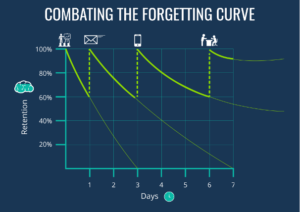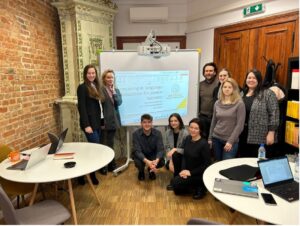news
20.02.2023
MEANING – Press release . Our project comes to its end!
Last week, the partnership met in Poznan, Poland, in the city of our coordinator for the last transnational partners’ meeting. Each member organisation of the MEANING project was represented to discuss the final elements of the project implementation. The partners were able to list the last elements to be finalised in order to close this great project.
10.12.2022
Is it time to include emotional intelligence in speaking tasks?
10.09.2022
Five tips in order to improve your English as an adult
28.03.2022
Migration and linguistic integration
10.01.2022
The fallacy of Learning Styles
29.09.2021
How to make learning effective
20.05.2021
Reasons that may encourage study English in the senior age
27.01.2021
A blog dedicated to
self-study language learning
During the COVID19 crisis we have understood the importance of online learning, especially for vulnerable groups for whom is essential to respect preventive measures and stay home.
07.02.2023
Adapting pedagogical approaches to seniors’ specificities as learners
23.11.2022

https://elearningindustry.com/forgetting-curve-combat
The forgetting curve and spaced repetition in language learning
If you have ever tried to learn vocabulary, you are likely to be familiar with this phenomenon: After studying new words for hours on end, you finally feel like you are able to remember everything. But then two weeks later, when trying to recall those words, your mind suddenly draws a blank, and you are unable to really recall anything at all.
28.08.2022
How films can help you learn a language
Films are a great medium to use when it comes to improving your language skills like vocabulary, pronunciation, learning informal phrases and even getting to know the cultural aspects of other languages. It should be stated that films alone will not automatically turn you into a native speaker, however it can be a great addition to your learning process, especially if you use it wisely. Here are some tips and methods how to incorporate movies into your learning routine:
14.02.2022
Some research behind language learning….
14.12.2021
29.07.2021
22.02.2021
Who is an adult learner?
When planning for a year, plant corn. When planning for a decade, plant trees. When planning for life, train and educate people (a Chinese proverb).
15.12.2020
Age-appropriate language learning
In adult education, the group of people aged 55+ have a special role: they are not only often interested in different topics than younger learners, but also the way the lessons should be conducted is different. The MEANING project has set itself to shedding more light on the needs of learners of 55+ years. An introduction to the principles of to age-appropriate language learning can be found here:
28.01.2023
Pronunciation in elderly language learning
The foreign language learning process can provide significant health and social benefits to elderly citizens and is also becoming a more and more necessary skill in the rapidly changing world environment.
15.10.2022
Technology value for learning English
28.04.2022
Bilingualism is natural for our brain!
“Our brains are capable of engaging with multiple languages,” says Sarah Phillips, a PhD student at New York University and lead author of the paper (“Composition within and between Languages in the Bilingual Mind: MEG Evidence from Korean/English Bilinguals”), published in the journal eNeuro.
30.01.2022
MosaLingua
During the COVID19 crisis we have understood the importance of online learning, especially for vulnerable groups for whom is essential to respect preventive measures and stay home. So, what to do for seniors who want to learn a language? The answer is online language classes.
30.11.2021
How gamification influences the learning process
01.06.2021
Socialization in online education!
08.02.2021
The European Profiling Grid
If you are a language teacher you can try an interesting tool for language teachers for raising awareness about language teaching competences and teaching quality and are also important aids to teacher training and development.
The e-Grid aim is to help language teachers assess their professional strengths and training needs, and to support people who are managing and supporting teachers.






















